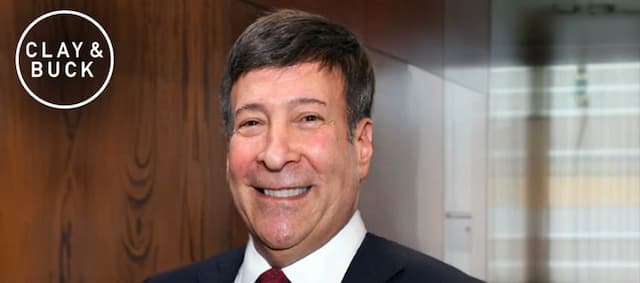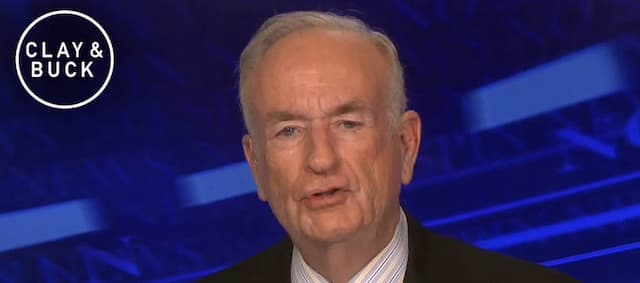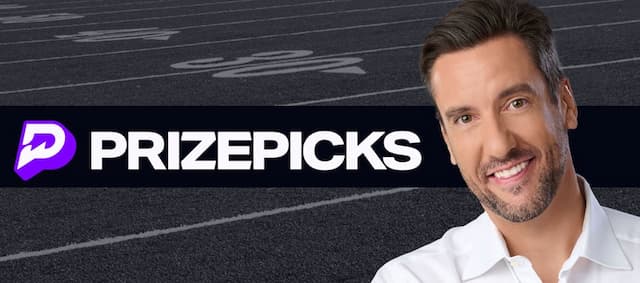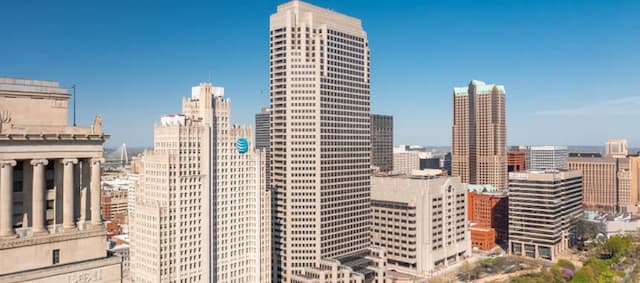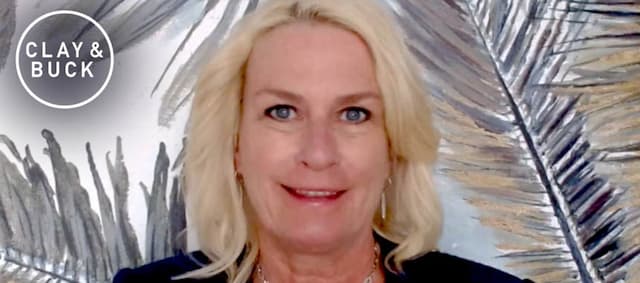Sean Hannity on Rush’s Enduring Legacy
CLAY: We bring in now a guy who has had a longtime relationship with Rush Limbaugh as well. He is Sean Hannity. You might know him from his fantastic radio show that follows us as well as his show that airs every single night at 9 Eastern on Fox News. Sean, appreciate you joining us, and I’ve got to say right off the top: When did you first meet Rush? What kind of experience and relationship did you guys have, and what do you recall about it?
HANNITY: Oh, man. By the way, first congratulations to you guys.
CLAY: Thank you.
BUCK: Thank you.
HANNITY: When you follow the greatest of all time, it’s always hard ’cause naturally people will make comparisons. You guys have done phenomenally well, and I know Rush was never a zero-sum game guy. He always wanted everyone else to succeed. He never viewed his success based on the failure of others. Kathryn’s interview was great. She also did an interview with Ainsley on Fox & Friends.
CLAY: Yeah.
HANNITY: I think they had two hours on Fox Nation, which was amazing. The first time… He wouldn’t even remember the first time I met him. I was a local host in Atlanta from ’92 to ’96 before Fox even went on the air, and I went up to New York, and I just happened to visit the studios of WABC. I was up to do Phil Donahue’s show, and I popped my head into his office and I just said hello, and his brother David — who I love; he’s like family to me — had negotiated all my contracts.
So, we kind of arranged a quick hello, and he was nice. We did a contest once when he was doing his TV show and I brought listeners up to New York. We stayed at the Plaza Hotel. It wasn’t the greatest, but he was very gracious to me back then, and even during the live show called me down. He was selling Rush ties at the time and gave me one of his ties, which were really, you know, very, very unique and designed by him I think at the time.

I think we all have really… We all owe him a debt of gratitude. When Rush started syndication, nobody thought syndicated radio in 1988 would work. And here’s this guy, was very successful in Sacramento, California, and he comes to New York — the number-one radio market in the entire country. He has to do a two-hour local show. He originally started his syndicated show as a two-hour show, and all of a sudden…
I had just started in radio myself a year earlier, and I remember when somebody came up to me and told me, “Hey, Rush Limbaugh, have you heard this guy?” and I’m like, “No, who’s Rush?” and he was on a local station. I was in Santa Barbara, California, just starting my career at UCSB. They rightly threw me out of the school and ran me out of town, which got me my first professional gig in Huntsville, Alabama. “You gotta hear this guy. He’s a riot.”
He would do these things like the Homeless Update, and he was funny, he was smart, he was a conservative. He just pops out of the radio. And from that day forward, it was just obvious to anybody who would listen to him how amazingly gifted and talented he was. The thing that I always took away from Rush is he always had a unique take on whatever the issue of the day was, something that nobody else would ever think of.
I can’t tell you how many times… I always liked to listen to his opening monologues, and whatever the topic of the day was, he would express it and bring up a point of view and I’m like, “Why doesn’t my brain think like that?” He was that gifted. And when he passed away a year ago, look, it was rough for everybody, and I said at the time that he’s irreplaceable — and he is — and I said at the time, “What would Rush want us to do?”
He’d want us all to up our game and stay in the fight. He was a patriot. He loved this country. He believed in the individual. He loved freedom. He loved capitalism. He loved our Constitution. He saved the AM band, and he also reinvigorated all things conservative — and this is at the beginning of the end of Ronald Reagan conservatism. Newt Gingrich will tell you that 1994, the victory that swept the country for the first time in 40 years Republicans took back Congress. That wouldn’t have happened without Rush Limbaugh.
He led the way. I was a local host in Atlanta. I was the emcee of Newt’s event that night at the Cobb Galleria, and that was the Newt. That was the night. Imagine, 40 years in the wilderness, right? And Republicans got back in power. Rush played a very big part of it, and so he was the intellectual center of conservatism. But he also simultaneously… Music moved from the AM band to the FM band, and AM radio was beginning to die, and then all of these stations start converting over to talk radio or news-talk radio.
 And he played the most pivotal role in all of that. He only could do three hours a day (chuckles), so these stations had 21 other hours a day that they needed to program, and I remember filling in for him him. That was an opportunity of a lifetime. I’m in the beginning of my opening monologue, and the Golden EIB Mic — and it is golden — falls down right off the hinges!
And he played the most pivotal role in all of that. He only could do three hours a day (chuckles), so these stations had 21 other hours a day that they needed to program, and I remember filling in for him him. That was an opportunity of a lifetime. I’m in the beginning of my opening monologue, and the Golden EIB Mic — and it is golden — falls down right off the hinges!
CLAY: (laughing)
HANNITY: It’s laying on the desk. I stretch my neck down to finish the monolog; I’m thinking, “Okay, 600 stations. This is not going particularly well,” and I finished, and Rush I remember he comes back, and he goes, “Sean Hannity dented the Golden EIB Mic,” just typical Rush with a great sense of humor.
CLAY: (laughing)
HANNITY: And I’m grateful to him, more than anything else. I still have a hard time understanding that he’s been gone a year. I still expect to hear him — I love that you kept his music — and it’s such a loss for the country, for conservatism. And the one thing that we all learned about Rush — and I said it at the time when he passed away — we now know what Rush’s bucket list was.
When he announced that he had advanced stage 4 lung cancer, I think so most people probably were like me. You probably got on the internet. You probably started Googling, “What is the latest advancements?” We know, for example, that leukemias that used kill people 30 years, they have a 95, 96% chance of saving people. What’s the latest on lung cancer? I did my reading. There was nothing good that I was real seeing, and he would go and take these extremely harsh treatments.
And his only goal was not to check off a box on his bucket list. His only bucket list was to get back on the microphone, behind the microphone, back on the air, and talk to his audience. And I think that spoke volumes about him. That was his life’s mission, his life’s purpose — I would even argue, his life’s destiny. That was what he was born to do. I got a political cartoon, Clay. I wish I remembered the guy’s name.
It’s so beautiful, such a great gift, and I have it in my office. It’s Rush at the Pearly Gates — and he has in his hands TALENT. It says the word “TALENT,” and it says, “I’m here to return” TALENT, ’cause people used to take what he said — it was tongue-in-cheek — “With talent on loan from God,” he had this booming voice. And then liberals, they would like bubble and fizz like Alka-Seltzer at everything he said. It cracked me up.
CLAY: (laughing)
BUCK: Hey, Sean, it’s Buck. I just want to know if you think Rush could tell his audience anything today, what do you think it would be?
 HANNITY: I think he would want… Look, Ronald Reagan said America’s but one generation away — freedom is one generation away — from extinction. The thing that drove Rush more than anything else was the passion and the love that he had for this country. He was God, family, country. That was Rush Limbaugh, and he embodied all of that. Radio is… Look, I do radio and TV. You guys do radio and TV.
HANNITY: I think he would want… Look, Ronald Reagan said America’s but one generation away — freedom is one generation away — from extinction. The thing that drove Rush more than anything else was the passion and the love that he had for this country. He was God, family, country. That was Rush Limbaugh, and he embodied all of that. Radio is… Look, I do radio and TV. You guys do radio and TV.
They’re very different mediums. And on radio, it’s a heart medium, and people will sense your sincerity, and they can detect a phony pretty quickly, and Rush had that connection with his audience. He was sincere, he was honest, he was fun, he was lively, he loved to share his life and the things that he cared about. If Rush got a passion for any one thing, he’d go all-in, all on board.
I went down to his Palm Beach studios once to interview him, and Rush had a passion for all things, as you know, Apple. Rush hands me not one iPhone, two iPhones. He goes, “I want you to try this one — it’s a smaller version — then try the big one, and then write me back. Let me know which one you like better.” I’m like, “Okay, Rush. Thanks for the free phones,” right? He just would hand them out like they were candy.
CLAY: (laughing)
HANNITY: I think he gave one to everybody that was there. He had an amazingly generous side to him. I also think there was a part of Rush that maybe people don’t know that was maybe more shy than people think. I think he had to go through a lot, because he forged that path that made it easier for everybody else. But as he was knocking down those trees and forging that path, he was taking a lot of slings and arrows and attacks. I don’t think it was easy on him. I think it was very difficult. But it made it easier for people like me and people like you guys and everybody else that’s in talk radio to be able to follow him.
BUCK: We’re talking to Sean Hannity. Sean, any last thoughts for folks about the one-year anniversary?
HANNITY: I’m very close to his brother, David. He’s negotiated every contract I’ve ever had in my life, and I love him, and I love his family, and I just… I’m thinking of him today. I’m thinking of Kathryn today. I’m thinking of his nieces and nephews today, and I know that Rush would want one thing from all of his dedicated millions of listeners, and that’s to continue the mission that he dedicated his life to. He’s in our prayers, our thoughts — and, frankly, I just miss him on this day.
HANNITY: It’s a tough day to think about losing him. You talk about the greatest of all time. There’s been a lot of talk about Tom Brady. Well, he was the GOAT of talk radio, for sure.
BUCK: Sean Hannity, everybody. Sean, thanks so much for speaking to us today and everyone across the country.
HANNITY: All right, guys.
BUCK: We appreciate it, Sean.
CLAY: Thanks, Sean.


